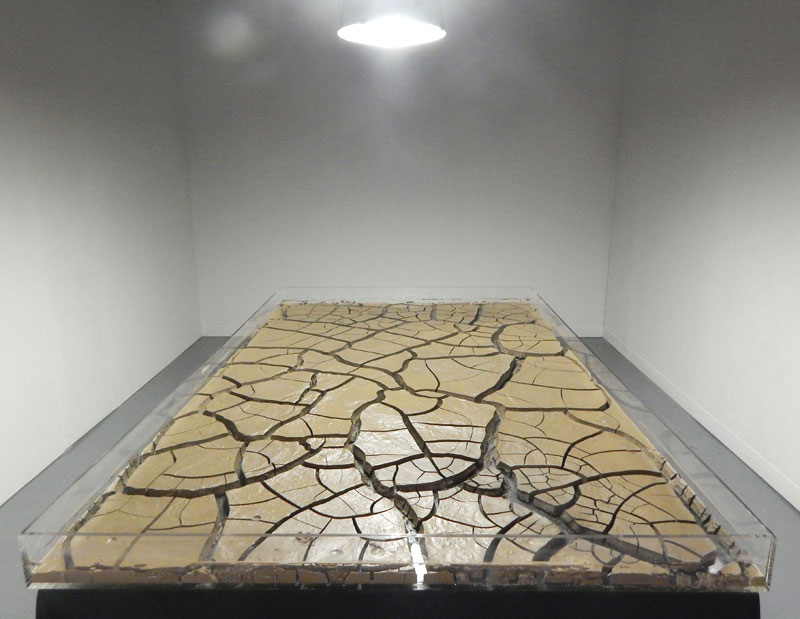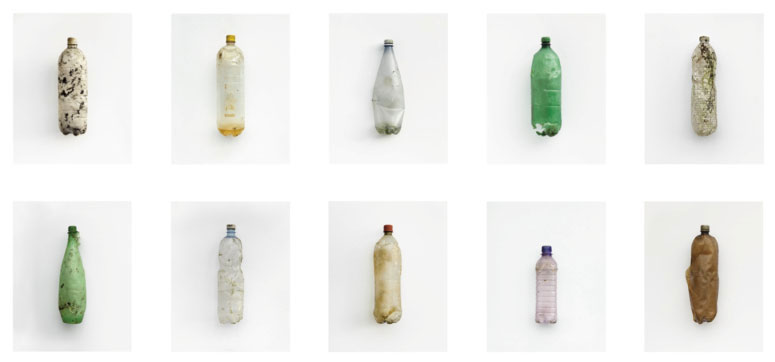
A Culture Defined by What it Discards:
Art for the Anthropocene
From Planet 227
by Ellen Bell

Julian Ruddock, 2B We came from this place, 2017 © Julian Ruddock.

Detail from Mike Perry, Bottles Grid x 15, Soft Drinks, 2012 © Mike Perry.
In a now iconic scene from the 1967 film The Graduate Benjamin Braddock, fresh out of college, is accosted at his graduation party by Mr Maguire, a friend of his parents:
Mr Maguire: I want to say one word to you. Just one word.
Ben: Yes, sir.
Mr Maguire: Are you listening?
Ben: Yes I am.
Mr Maguire: Plastics.
Ben: Exactly how do you mean?
Mr Maguire: There’s a great future in plastics. Think about it. Will you think about it?.
Fifty years on and that so-called great future continues to flourish. According to Heather Rogers in Gone Tomorrow: The Hidden Life of Garbage the plastics industry is growing at twice the annual rate of all other US manufacturing. Plastic is light, cheap, malleable, durable and organically indestructible: the production of the material has far-reaching consequences. Rogers claims the Pacific Ocean currently contains six times more plastic waste than plankton. In an online article from 8 June 2017 heralding a UN-backed accord between Asian nations to keep plastics out of their oceans, the BBC estimated that between 5 to 13 million tons of plastic flow into the world’s seas every year.
Sign in to read more